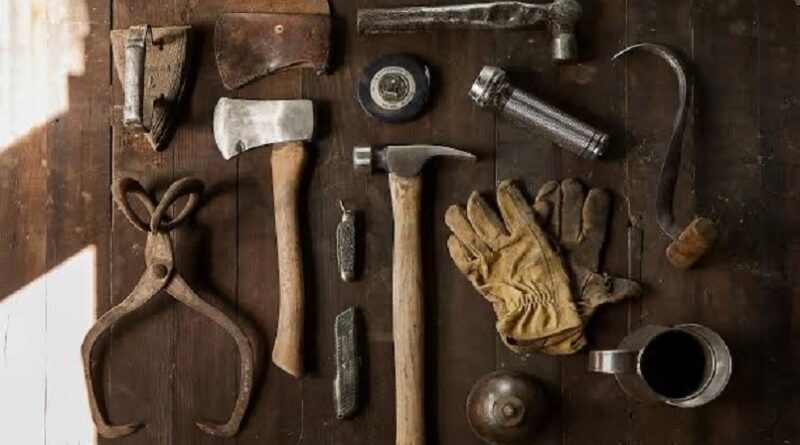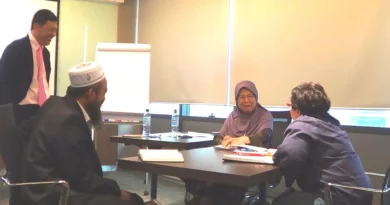The Handyman’s Manifesto: Rebuilding Your World, One Fix at a Time
In a world where mass production and disposable goods dominate, the value of craftsmanship, repair, and hands-on problem-solving is often overlooked. Yet, the handyman remains a crucial figure in our communities, ensuring that our homes, workplaces, and lives run smoothly. This manifesto is a tribute to those who embrace the art of fixing, improving, and rebuilding—one project at a time.
The Power of Self-Reliance
At the heart of the handyman’s philosophy is self-reliance. Being able to diagnose and repair problems fosters a sense of independence and confidence. Rather than relying on expensive professionals for every minor inconvenience, a skilled handyman understands the basics of plumbing, carpentry, electrical work, and general maintenance. This knowledge empowers individuals to take control of their environments, solving problems as they arise.
The ability to fix things isn’t just about saving money—it’s about fostering a mindset of resilience. When something breaks, a handyman doesn’t panic; they assess, plan, and execute a solution. This problem-solving approach extends beyond tools and materials, shaping how a person interacts with challenges in everyday life.
Sustainability through Repair
We live in an era where it’s often cheaper to replace an item than to repair it. However, this culture of disposability is taking a toll on our planet. Landfills are overflowing with discarded furniture, electronics, and appliances that could have been fixed with a little effort.
A true handyman is an advocate for sustainability. By choosing to repair instead of replace, they reduce waste and minimize their environmental footprint. Every fixed door hinge, patched-up drywall, or revived washing machine represents a small victory against the throwaway culture. Handymen contribute to a more sustainable world by extending the life of objects, repurposing materials, and minimizing unnecessary consumption.
The Joy of Craftsmanship
There is an undeniable satisfaction in working with one’s hands. Whether it’s restoring an old wooden chair, wiring a new light fixture, or laying tiles, the act of creating and improving brings a deep sense of fulfillment. Unlike many modern jobs that revolve around digital screens and abstract tasks, handyman work is tangible and rewarding.
The pride that comes with seeing a finished project is unmatched. Each repair or construction project is a testament to skill, patience, and effort. The beauty of craftsmanship lies in the details—smoothly sanded wood, perfectly aligned screws, and the seamless integration of function and aesthetics. These moments of accomplishment fuel the passion for fixing and building, motivating handymen to take on new challenges.
The Role of the Handyman in the Community
Handymen play an essential role in strengthening communities. Whether they’re fixing a neighbor’s fence, helping a friend install shelves, or volunteering for local repair projects, their skills contribute to the well-being of those around them. These acts of service build trust, cooperation, and a sense of belonging within a community.
Moreover, sharing knowledge and skills with others ensures that the tradition of handy work continues. Teaching a child how to hammer a nail or showing a friend how to unclog a drain passes down valuable knowledge that fosters self-sufficiency. The handyman’s legacy is not just in the structures they repair, but in the wisdom they impart to others.
Embracing the Handyman Mindset
Becoming a handyman doesn’t require formal training or expensive tools—just a willingness to learn and a proactive attitude. The handyman mindset is about embracing challenges rather than avoiding them. It’s about seeing potential where others see problems and taking action instead of waiting for someone else to step in.
Start with the basics: learn how to use a hammer, screwdriver, and wrench. Understand the fundamentals of fixing a leaky faucet, changing a lightbulb, or assembling furniture. Over time, these small skills build into a repertoire of knowledge that enables you to tackle more complex projects.
Resources for learning are abundant. From online tutorials to home improvement books, the wealth of information available makes it easier than ever to develop handyman skills. Local workshops, community classes, and mentorships also provide hands-on experience and guidance.
A Call to Action
The world needs more people willing to fix instead of discard, to build instead of buy, and to take action instead of standing by. The handyman’s manifesto is a call to embrace the mindset of self-reliance, sustainability, and craftsmanship.
Next time something breaks, resist the urge to replace it immediately. Instead, take a step back and assess whether it can be repaired. Invest in learning new skills, gather essential tools, and take pride in the work you do. The more you practice, the more confident you’ll become in your ability to maintain and improve your surroundings.
By adopting the Handyman Huston mindset, you’re not just fixing objects—you’re shaping a more resilient, sustainable, and connected world. So grab your toolbox, roll up your sleeves, and start rebuilding—one fix at a time.
In a world where mass production and disposable goods dominate, the value of craftsmanship, repair, and hands-on problem-solving is often overlooked. Yet, the handyman remains a crucial figure in our communities, ensuring that our homes, workplaces, and lives run smoothly.
The Power of Self-Reliance
At the heart of the handyman’s philosophy is self-reliance. Being able to diagnose and repair problems fosters a sense of independence and confidence. Rather than relying on expensive professionals for every minor inconvenience, a skilled handyman understands the basics of plumbing, carpentry, electrical work, and general maintenance. This knowledge empowers individuals to take control of their environments, solving problems as they arise.
The ability to fix things isn’t just about saving money—it’s about fostering a mindset of resilience. When something breaks, a handyman doesn’t panic; they assess, plan, and execute a solution. This problem-solving approach extends beyond tools and materials, shaping how a person interacts with challenges in everyday life. Learning to adapt, improvise, and overcome obstacles makes a handyman a resourceful and dependable individual in any situation.
Sustainability Through Repair
We live in an era where it’s often cheaper to replace an item than to repair it. However, this culture of disposability is taking a toll on our planet. Landfills are overflowing with discarded furniture, electronics, and appliances that could have been fixed with a little effort.
A true handyman is an advocate for sustainability. By choosing to repair instead of replace, they reduce waste and minimize their environmental footprint. Every fixed door hinge, patched-up drywall, or revived washing machine represents a small victory against the throwaway culture. Handymen contribute to a more sustainable world by extending the life of objects, repurposing materials, and minimizing unnecessary consumption. They also inspire others to adopt similar habits, fostering a culture of resourcefulness and environmental consciousness.
The Joy of Craftsmanship
There is an undeniable satisfaction in working with one’s hands. Whether it’s restoring an old wooden chair, wiring a new light fixture, or laying tiles, the act of creating and improving brings a deep sense of fulfillment. Unlike many modern jobs that revolve around digital screens and abstract tasks, handyman work is tangible and rewarding.
The pride that comes with seeing a finished project is unmatched. Each repair or construction project is a testament to skill, patience, and effort. The beauty of craftsmanship lies in the details—smoothly sanded wood, perfectly aligned screws, and the seamless integration of function and aesthetics. These moments of accomplishment fuel the passion for fixing and building, motivating handymen to take on new challenges.Additionally, craftsmanship is an art form. Many handymen take their work beyond mere functionality.
The Role of the Handyman in the Community
Handymen play an essential role in strengthening communities. Whether they’re fixing a neighbor’s fence, helping a friend install shelves, or volunteering for local repair projects, their skills contribute to the well-being of those around them. These acts of service build trust, cooperation, and a sense of belonging within a community.
Moreover, sharing knowledge and skills with others ensures that the tradition of handy work continues. Teaching a child how to hammer a nail or showing a friend how to unclog a drain passes down valuable knowledge that fosters self-sufficiency. The handyman’s legacy is not just in the structures they repair, but in the wisdom they impart to others.
Many communities lack access to affordable repair services, making the handyman’s role even more vital. From assisting elderly neighbors with home maintenance to supporting local businesses with repairs, the handyman’s impact extends far beyond their own household. They are the unsung heroes of daily life, keeping things running smoothly for everyone.
Embracing the Handyman Mindset
Becoming a handyman doesn’t require formal training or expensive tools—just a willingness to learn and a proactive attitude. The handyman mindset is about embracing challenges rather than avoiding them. It’s about seeing potential where others see problems and taking action instead of waiting for someone else to step in.
Start with the basics: learn how to use a hammer, screwdriver, and wrench. Understand the fundamentals of fixing a leaky faucet, changing a lightbulb, or assembling furniture. Over time, these small skills build into a repertoire of knowledge that enables you to tackle more complex projects.
Resources for learning are abundant. From online tutorials to home improvement books, the wealth of information available makes it easier than ever to develop handyman skills. Local workshops, community classes, and mentorships also provide hands-on experience and guidance.




